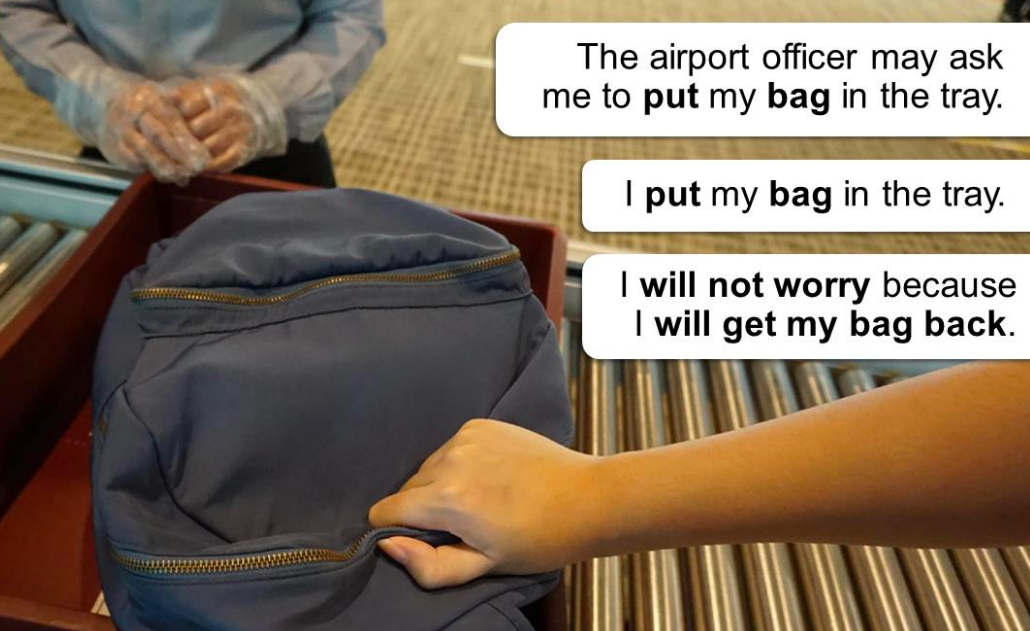Singapore's Changi Airport just announced new initiatives to improve air travel for people with invisible disabilities. Think autistic and other neurodiverse people, as well as those with dementia. The airport is taking a three-pronged approach: creating a social story, offering lanyards as identifiers, and appointing Care Ambassadors.
The social story is a visual guide showing every step of the airport journey to help passengers prepare in advance. Highly detailed, the story covers everything from security screening to waiting in line, and can be downloaded ahead of time for viewing on a screen or printing.
Once they've arrived at the airport, passengers can choose to wear lanyards to indicate they need more help or time going through airport processes. Changi works both with the 'May I Have a Seat Please' lanyard, issued by the Land Transport Authority, and with a sunflower lanyard, a globally-recognized symbol for non-visible disabilities.
Additionally, over 300 Changi frontline staff members have been designated as Care Ambassadors, training them to recognize people who might need extra assistance, and how best to support and communicate with those passengers.

A page from Changi Airport's social story
Trend Bite
Not all disabilities are visible. And not every human variance is a disability. But air travel can be more overwhelming for some people than for most. From navigating a busy airport to following unfamiliar rules and processes and being herded onto an aircraft, the experience can be paralyzing.
But thoughtful adjustments help. Changi isn't the first airport to provide support of this kind. Pittsburgh International Airport, for example, built a sensory space that includes a replica of an airplane cabin.
For any complex space your own brand manages: how can you add comfort and remove stress for customers who are neurodivergent or have other disabilities that aren't immediately apparent?
Related: Glasgow museum invites families and people with dementia to volunteer
Join 100,000+ future-focused professionals in 180 countries already receiving our free trend updates.
Select your country